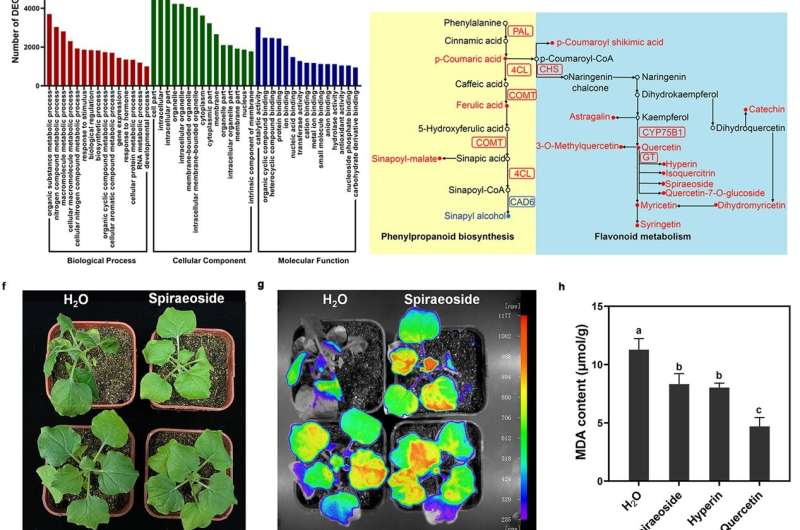This article has been reviewed according to Science X's editorial process and policies. Editors have highlighted the following attributes while ensuring the content's credibility:
fact-checked
peer-reviewed publication
proofread
Jojoba's survival strategy: How jasmonate boosts cold acclimation

Jojoba, a valuable industrial oil crop, is limited to tropical regions due to its sensitivity to low temperatures. Cold acclimation, where plants are exposed to low non-lethal temperatures, has shown the potential to improve cold tolerance in various species by triggering complex physiological and biochemical changes that enhance resilience to cold stress.
Based on these challenges, it is essential to investigate the molecular mechanisms behind cold acclimation in jojoba to develop strategies for its growth in temperate regions, thereby expanding its agricultural and economic potential.
Researchers from Minzu University of China and Beijing Normal University have conducted a study published in Horticulture Research on May 3, 2024. The study investigates how jasmonate, a plant hormone, enhances cold tolerance in jojoba by promoting flavonol synthesis. The research findings offer insights into developing cold-tolerant jojoba varieties.
The study utilized metabolomic analysis to show that cold acclimation induces the accumulation of various flavonols in jojoba. Time-course transcriptomic and weighted correlation network analyses (WGCNA) revealed that flavonol biosynthesis and jasmonate signaling pathways are vital for this process.
Biochemical and genetic tests identified ScMYB12 as a key transcription factor that activates the flavonol synthase gene (ScFLS). During cold acclimation, increased jasmonate levels lead to the degradation of the negative regulator ScJAZ13, enhancing the activity of the ScTT8 and ScMYB12 complex, and promoting flavonol accumulation.
These findings indicate that the jasmonate pathway plays a significant role in cold acclimation, suggesting it as a potential target for breeding jojoba varieties with improved cold tolerance. This research provides valuable insights into developing strategies for expanding jojoba cultivation into temperate regions.
Dr. Fei Gao, the corresponding author of the study, stated, "Our research uncovers the pivotal role of jasmonates in enhancing cold tolerance in jojoba. By understanding the molecular mechanisms involved, we can develop strategies to improve the cold resilience of this valuable crop."
The insights from this study can be applied to the breeding of cold-tolerant jojoba varieties, expanding its cultivation to temperate regions. This advancement not only enhances jojoba production but also contributes to preventing land desertification, offering both economic and ecological benefits.
More information: Lamei Zheng et al, Jasmonate enhances cold acclimation in jojoba by promoting flavonol synthesis, Horticulture Research (2024). DOI: 10.1093/hr/uhae125
Journal information: Horticulture Research
Provided by Minzu University of China





















